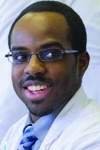 Many people interested in a career in healthcare originally think they’ll go to medical school and become a Doctor, but ultimately end up becoming a Nurse. Choosing between Nursing and Medical school depends on each person's career goals and what kind of studies they'd be most interested in.
Many people interested in a career in healthcare originally think they’ll go to medical school and become a Doctor, but ultimately end up becoming a Nurse. Choosing between Nursing and Medical school depends on each person's career goals and what kind of studies they'd be most interested in.
It's important to explore both options because while they can be similar in some aspects, they are very different in others.
Length of Training
The length of training is a major difference. Nursing programs range from 2 years for an Associate's degree, to 4 years for a Bachelor of Science in Nursing, to 6 years for a Master's. Medical school requires a minimum of 8 years of education plus residency.
Time Spent With Patients
Witnessing a loved one be taken care of by a medical professional is one reason many people choose to start a career in healthcare. If building a strong relationship with patients is meaningful to you, a career in Nursing is probably a better choice.
Often Doctors are in and out of the patient's room while the Nurse spends their entire shift taking care of a handful of patients.
Like many of our Annual DiversityNursing.com $5,000 Education Award Winners, Shelah Roanhorse, our 2021 Winner, initially wanted to be a Doctor, but after her brother Nate became sick with cancer, she witnessed the dedication and care the Nurses gave him. She saw how involved his Nurses were with his day-to-day care. This greatly influenced her decision to become a Nurse.
Career Opportunities
There is a high demand for healthcare professionals.
The Association of American Medical Colleges (AAMC) projects a shortage of between 54,100 - 139,000 Physicians by the year 2033.
And, According to the U.S. Bureau of Labor Statistics (BLS), employment of Registered Nurses is projected to grow 7% from 2019 - 2029, faster than the average for all occupations.
Doctors may be limited by their specialty area. A Nurse could be limited too depending on the specialty, but Nurses can work both in and out of the hospital in a variety of settings including...
- Educators at Schools of Nursing
- School Nurses
- Insurance companies as health coaches, case managers and Nurse navigators
- On-staff Nurses at non-healthcare companies
- Law firms as medical forensics investigators
Leadership Roles
There is a misconception that leadership opportunities are limited in Nursing.
Many Nurses lead initiatives to improve quality of care and patient safety. Some Nurses join their healthcare organization's C-suite and become Chief Nursing Officers or Chief Diversity Officers.
With ongoing healthcare reform and new models of care delivery across the U.S., the role of Nurses is likely to further expand and allow them to take on new and dynamic roles in healthcare.
Whether you choose to become a Nurse or a Doctor, both careers are extraordinarily rewarding. Try to learn as much as you can about both avenues of healthcare before making your big decision.



